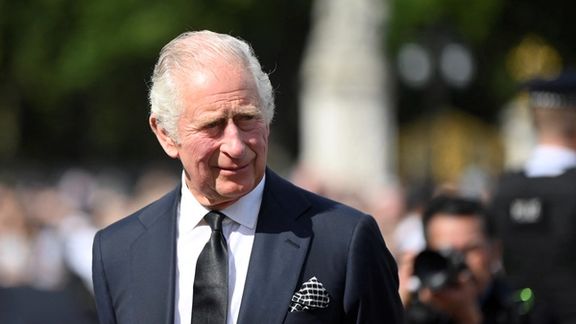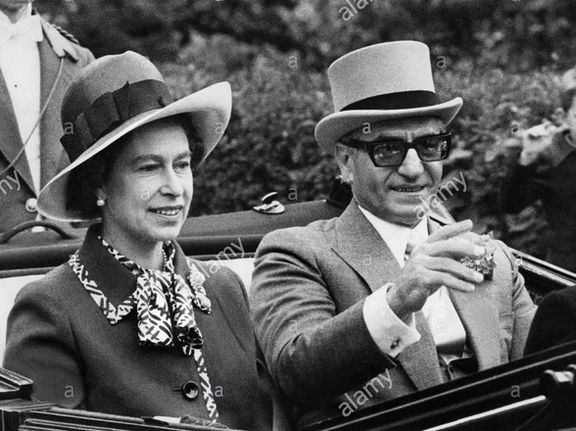Tehran Silent On Queen Elizabeth's Passing

Unlike other countries, Iran has not sent condolences to the newly enthroned King Charles III of Britain following the death of his mother Queen Elizabeth II.

Unlike other countries, Iran has not sent condolences to the newly enthroned King Charles III of Britain following the death of his mother Queen Elizabeth II.
“The stances of the Iranian government in diplomatic matters are usually against accepted international norms and this is not surprising to those who regularly follow developments related to Iran,” Germany-based political analystPezhman Golchin told Iran International.
World leaders, including those of Iran’s neighbors such as Turkey and Saudi Arabia, and even the Russian President Vladimir Putin, have sent condolences to the British government and King Charles who has succeeded his mother. The Islamic Republic of Iran andthe Islamic Emirate of Afghanistan have remained silent.
The British monarch visited Iran in 1961, at the end of an extensive Tour of India and Pakistan but not after the Islamic revolution of 1979. Prince Charles who was patron of the British Red Cross, however, made an unofficial visit to the Iranian city of Bam in February 2004 following a devastating earthquake that left around 30,000 people dead. The Prince met with Iran’s president Mohammad Khatami who was considered a more moderate leader.

Golchin said the long-standing disputes between the Islamic Republic and Britain which date back to the Islamic Revolution of 1979, and the fact that the British embassy was stormed and taken over by hardliners in 2011 could be among the reasons for the silence of Iranian officials.
Iran’s exiled Prince Reza Pahlavi, however, condoled the British people and royal family on behalf of himself and his family in a message soon after the announcement of the Queen’s death. Prince Reza Pahlavi said in his message that Queen Elizabeth will be remembered as a symbol of wisdom, strength, and grace.
Some hardliners who are generally against the institution of monarchy, beside hostility towards Britain, have even expressed delight over the Queen's death in their social media posts while some others have opined that withholding condolences is a sign of Iran's “independence”.

In his speeches, Iran's Supreme Leader Ali Khamenei usually refers to Britain as the “Evil Britain” and his disdain is on par with his hostility towards the United States, the “Great Satan”.
In July 2009 during protests following a disputed election which put his favorite candidate Mahmoud Ahmadinejad back in office, Khamenei alleged that Britain had fomented unrest in the country. Soon after his speech Iranian security forces arrested nine local staff of the British embassy in Tehran for alleged incitement of protesters to unrest and espionage.
On November 29, 2011, a group of hardline students many among whom were affiliated with the Basij militia attacked the UK embassy compound a day after Tehran downgraded its diplomatic relations with London over a new sanction imposed on Iran. Attackers took over the embassy for a few hours and forced staff to leave the compound. The UK closed its embassy on the following day and ordered Iranian diplomats to leave London. The two countries only restored full diplomatic relations in August 2015.
Tensions rose again in July 2019 when fast boats of the Revolutionary Guard (IRGC) had an encounter with the British Royal Navy After trying to impede their movement in the Strait of Hormuz.
Relations between Iran and Britain date back to the 13th century but it was in the 19th century that the British Empire became deeply involved in Iranian politics and a negative attitude towards British, and its rival Tzarist Russia began to take deep roots among Iranians. This negative attitude grew worse following the 1953 coup that overthrew the nationalist prime minister Mohammad Mossadegh and restored the Shah.